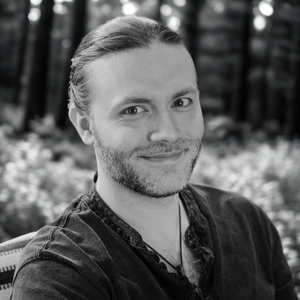
Equity asks more of us than fairness. It invites repair — tending the uneven ground between access, privilege, and belonging in Oregon’s evolving psilocybin landscape.
The ground remembers everything — who was welcomed, who was turned away, who still waits at the gate.
To walk with equity is to feel that memory beneath our feet and keep walking anyway, together.
The ground we stand on is not level.
It holds the weight of history — ownership, displacement, privilege, silence. Even the forest soil remembers who had access to its medicine and who did not.
When we talk about equity in psilocybin work, we’re not just speaking about fairness in cost or opportunity. We’re speaking about the invisible terrain beneath every conversation, every ceremony, every system that decides who is allowed to heal and who must wait their turn.
Walk With Hart was founded with the belief that this work — the work of coming home to ourselves — must also be the work of repairing our relationship to one another.
In theory, equality sounds noble: everyone gets the same thing. But equality assumes that we all begin from the same starting line — and that has never been true.
Equity begins by acknowledging difference. It understands that some people start the race barefoot, uphill, and carrying the weight of generations.
Within Oregon’s psilocybin framework, the same dynamic quietly persists. Legal access is progress, but cost, culture, and history remain barriers. The state may have legalized psilocybin services, but equity asks a deeper question: who can actually access them?
A six-week program that costs several thousand dollars may be reasonable for some and impossible for others. But even beyond money, there are subtler barriers — the fear of being misunderstood, the lack of facilitators who share your lived experience, the exhaustion of navigating systems that were never built for you.
Walk With Hart’s reduced-rate and supported programs exist to help address that imbalance. But equity isn’t about discounts. It’s about designing spaces that remember who was left out and actively making room at the table.
Modern wellness culture — including much of the psychedelic field — has deep roots in colonial thinking.
The pattern is familiar: extract wisdom from Indigenous cultures, repackage it for Western audiences, and sell it back as a path to enlightenment.
This isn’t always done with malice, but harm doesn’t require intention — only inattention.
Decolonizing wellness doesn’t mean rejecting everything Western culture has created. It means noticing where extraction still happens. It means asking: Who is credited? Who profits? Whose voices are missing from the conversation?
At Walk With Hart, decolonization isn’t a slogan; it’s a posture. It means slowing down. It means listening more than speaking. It means seeing psilocybin not as a product to sell, but as a relational medicine — one that asks humility from those who serve it.
Even within Oregon’s legal model, access remains uneven.
To legally participate in a psilocybin journey, you must pay for the facilitator, the service center, and the medicine itself. These costs are necessary within the law’s framework, but together they can easily exceed several thousand dollars — putting transformative experiences out of reach for many.
For BIPOC, LGBTQ+, disabled, and low-income individuals, the barriers aren’t just financial. They are cultural, emotional, and systemic. They are the quiet hesitations:
“Will I be understood here?”
“Will my story be honored or explained away?”
“Is this space built for someone like me?”
Equity work within psilocybin is about dismantling those invisible walls. It’s about representation — having facilitators and spaces that reflect the diversity of the people who seek them. It’s about recognizing that trauma looks different across cultures, and that healing must too.
Walk With Hart’s mission is not simply to provide psilocybin facilitation. It’s to model a different way of doing it — one grounded in reciprocity, transparency, and respect.
Our commitment to equity includes:
And importantly — Walk With Hart may not be the right fit for everyone. That’s part of the integrity of this work.
If your needs, background, or goals would be better supported by another facilitator or approach, we’re committed to helping you find that path.
Because access isn’t about filling our calendar; it’s about ensuring every person finds the environment where they can safely unfold.
Equity, in this context, is not charity. It’s accountability — a conscious effort to redistribute opportunity and dignity where they’ve long been withheld.
The external structures of access are only half the story. The deeper work of decolonization begins within.
Many of us — facilitators, practitioners, seekers alike — have internalized the very hierarchies we wish to dissolve.
The urge to fix. The savior impulse. The rush to deliver transformation. These are colonial patterns in softer clothing.
To decolonize the inner space means practicing humility. It means learning to hold space without controlling it, to trust emergence over agenda.
It’s the difference between guiding someone and walking beside them.
At Walk With Hart, this principle shows up in how we speak, how we listen, and even how we price. The six-week program, for example, includes embodied preparation and integration work — not as extras, but as essentials. Because wisdom without embodiment is just another form of consumption.
Equity also means changing how we think about value.
In extractive systems, we ask: What can I get?
In reciprocal systems, we ask: What can I offer?
Walk With Hart’s access programs are one way of answering that question — a way of offering something back to the ecosystem that sustains us. But reciprocity also means more subtle exchanges: shared resources, mentorship between facilitators, collaborations with local communities, and a continual willingness to listen when we get it wrong.
True equity is never finished. It’s a living practice of repair.
Equity and decolonization can sound abstract, but they are grounded in small, real choices — who we include in our marketing photos, how we speak about the medicine, what we charge, how we respond when someone feels unseen.
The work beneath the work is not glamorous. It’s composting — slow, patient, often invisible. But compost is what makes new life possible.
Every session, every conversation, every access program is a chance to tend that soil. To move one handful closer toward balance.
Walk With Hart exists because repair is possible — not through grand gestures, but through steady presence.
When we walk together — across difference, across story, across privilege — the ground begins to shift. Not because we force it to, but because attention itself is medicine.
We walk not to lead or to follow, but to remember.
And in remembering, we return to the truth that equity is not an act of giving — it’s an act of belonging.

Every path branches into another. Wander through more writings on awareness, integration, and the quiet teachings of the natural world.